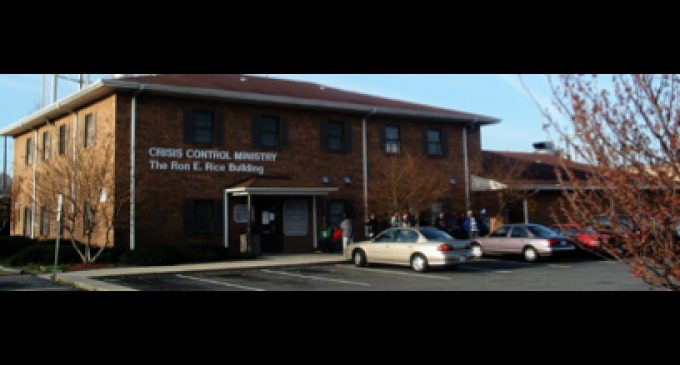Poverty statistics don’t tell all
Last year Crisis Control Ministry provided food for 4,48 adults and children.

A few weeks ago a report started making its rounds around the Internet indicating that Winston-Salem had one of the highest childhood poverty rates in the country. According to recent numbers from the U.S. Census Bureau, 35 percent of the children in the Twin City are living in poverty, which is the 20th worst in the country.
Other North Carolina cities that made the bureau’s list of cities with the worst childhood poverty rates include Fayetteville (29%), Greensboro (27%), Durham (26%), Charlotte (21%), Raleigh (20%). The Twin City also ranks higher on the list than large metropolitan cities like Dallas and Chicago.
While anyone can look at these numbers and come to the conclusion that more needs to be done to lift our community out of this hole, it is equally important that we look at the root causes of these issues and uplift programs and organizations that are already doing the work to change the narrative.
And most importantly, there is a need to point those who need it most in the right direction to receive the assistance.
It’s no secret that having a criminal record can have a negative impact on an individual’s ability to find legitimate employment, which in turn makes it difficult to provide for one’s family. In 2010 the Center for Economic and Policy Research released a study, which found that a felony conviction or imprisonment reduces the ability of ex-offenders to find jobs and it costs the U.S. economy between $57 and $65 billion annually in lost economic output.
Since 2014, the city’s SOAR Program has helped more than 100 ex-offenders find gainful employment. The program allows individuals to join the City of Winston-Salem’s workforce for six months, performing routine labor jobs such as landscaping and maintaining public buildings, and various departments. In addition to work experience and a steady job, participants in the SOAR program are provided life skills training, financial management, GED and post-secondary education, job search techniques and much more.
After the six months, participants are encouraged to apply for full-time positions with the city.
The city also offers a similar program for youth who have dropped out of high school called YouthBuild. Participants learn job skills and leadership development while getting paid and working toward their GED.
Regina Hall, city reintegration & youth development manager, said oftentimes individuals who have a criminal record or have dropped out of high school feel as if they are limited; so programs like SOAR and YouthBuild are important.
“…These are important because it sends a message that you’re not counted out. And that if you’re willing to take the first step, there’s somebody who is going to be willing to take a chance on you and allow you an opportunity to better yourself,” Hall said.
Food insecurity in our community is another contributing factor to the childhood poverty rates. To combat these issues, last summer the City of Winston-Salem Ministry received a grant, totaling $115,500, from the National League of Cities to fight hunger throughout the community.
According to an article published in The Chronicle on August 23, 2018, the funds from the “Think Orange” campaign will be focused on feeding children and expanding participation in the federal SNAP (Supplemental Nutrition Assistance Program).
While the city partnered with the Winston-Salem Urban League to increase participation in SNAP sometime last year, later this year the city will roll out the initiative to feed more youth and families in low-income communities. Thanks to a partnership with Second Harvest Food Bank and the Recreation & Parks Department, soon children at local recreation centers will be able to receive hot meals, free-of-charge.
“They’re actually going to start rolling out hot meal programs at the recreation centers, so some of the youth who go to recreation centers, whose mothers work 2nd and 3rd shift, can have somewhere to go after school and be able to get a hot meal,” said Hall. “There’s also a focus on expanding summer meal programs throughout the city and the county.”
The Winston-Salem/Forsyth County School System is doing their part to fight hunger as well. Last summer the district unveiled a food truck that traveled to various locations throughout the community delivering meals to children in need.
The city has non-profits and other organizations with big hearts doing the work every day to uplift those in need and addressing the root causes of poverty in our community. Crisis Control Ministries, Family Services, The Salvation Army, Samaritan Ministries, Social Heart, the Bethesda Center for the Homeless, HOPE of Winston-Salem, Neighbors For Better Neighborhoods, the Z. Smith Reynolds Foundation, the Black Philanthropy Initiative, the Urban League, are just a few that come to mind.
When discussing poverty in the area with The Chronicle last week, Hall said although it may be hard to look at the statistics on hunger and childhood poverty, the best part about Winston-Salem is that there are a number of opportunities.
“You hate to see poverty in your hometown but it’s always good to know there are opportunities. There are opportunities for people, so they don’t necessarily have to feel like they’re never going to get out. There are pockets of opportunity for people.”









